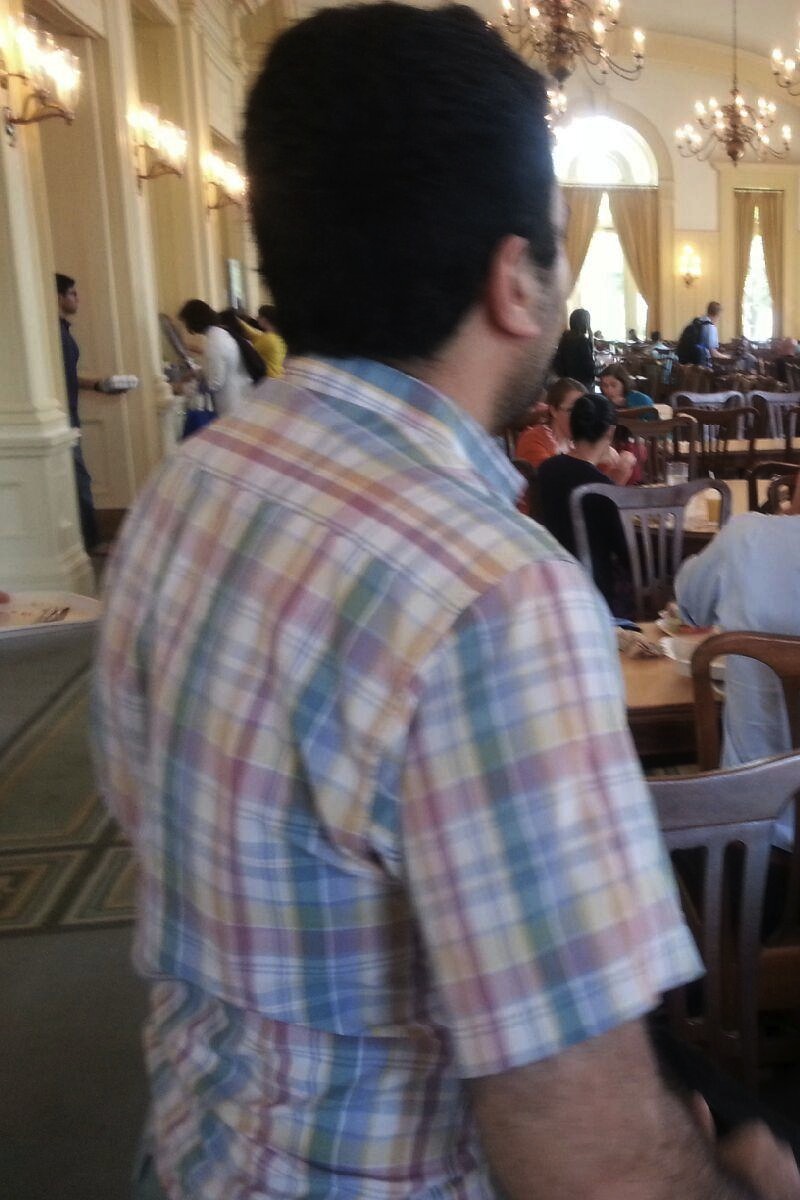Our new book, Salaam, Love: American Muslim Men on Love, Sex & Intimacy, will be released on February 4th. In the lead up to the release, meet our 22 contributors.
Today, meet A. Khan!

An excerpt from A’s story, “In the Unlikeliest of Places”:
I no longer fit the “good eldest son” role for my family. This turn of events I hadn’t thought out. Inevitably, my heightened sense of clarity faded. I had thought that going through a “coming out”—like most good, queer American men of my generation—was enough. Courageous enough, illuminating enough, powerful enough. What I had invited my family into, I soon realized, was a tangled web of displacement. The unease I felt with myself did not go away, and doing the “right thing” by coming out started to feel hollow. It became harder day in and day out to walk a path of uncertainty, in the most fundamental of my relationships. My family, no matter what, was the beginning and the end of all the love in my life.
To read more, order Salaam, Love today!
Q&A with A. Khan
Tell us about yourself
I moved to the United States as a teenager, but have lived in the Middle East, Africa and Europe. My parents are from the Islamic Republic of Pakistan, and I have become increasingly intrigued by the country and committed to being a part of it’s hopefully strong future. I am a big nerd at heart, love learning, and I dabble in various disciplines; I also love beauty and how we make the day-to-day aesthetically in line with ourselves and our visions for our selves. I love airplanes, airports, French and Japanese movies, traveling all over, capers, water, meeting people new and old. I am troubled and challenged by various global health problems, including the field of addiction. I generally write more academically but increasingly hope to write for a broader audience. I am actively a member of the Queer Muslim community. I want to make and work in clinics someday that provide holistic care.
Why were you drawn to this project?
It was important to me that experiences outside of the norm that I grew up with be part of any narrative of what Muslim men are like, or how they love. It gave me a chance as well to work out my experiences and my sense of ethics of story-telling through writing. In the end, it became about holding special the memory of my parents, and the women and men who I have loved and have shown me love. Some are mentioned in my story, others reside nonetheless in my words.
What was the most challenging part of sharing your story?
Condensing years of dense feelings and memories into a short story format that could do justice to the tensions I and many others experience. Also, struggling with the tension between providing satisfying closure on the one hand, and being truthful that much remains open-ended.
If you’re writing under a pen name, why?
What I reveal in the story makes me very vulnerable in a variety of contexts, and I also have a sense that I need to protect some people by not disclosing my identity. Ultimately, it was important to me that the experience be shared, not that a particular name or face be attached to it. There are some though who know and some who I, surprisingly to myself, am willing to let know, perhaps as an idealistic act of friendship.
If there’s one thing you hope that readers will take away from your story, what is it?
That it doesn’t matter if voices out there say sexuality and Islamic identity – and I mean truly Islamic identity, not just a generalized spirituality – cannot coexist. God finds a way to be Known through any and all experiences if we are open, and if we let voices from outside get too loud, we might miss on something valuable that can arise from within our depths. Islam values how we train our bodies, and one upshot of this is our bodies – at their best and at their worst – can be teachers. At the same time, my experiences are just my own in the end, and if someone you know out there reaches a different conclusion about the role of sex in their life, I ask that you pause before judgment. Along the same lines, what was a space of darkness for me may be one of light for someone else. So many permutations – Muslim men are, for me, like all other men, not defined by labels; their loves are sometimes too complicated for the simple stories we tell ourselves sometimes about how men love.
Anything else you want to share?
I would love for readers, male, female or otherwise, to reflect on the roles their friendships, loves, and kin relationships play in teaching them about the Divine. Much of the art I see coming out from Muslim communities is overtly political, and that is great and a reality of our present, but in a non-hokey way, I wish there was more of a link between our love stories and those expressed in the poetry that used to be a cornerstone of most Islamicate cultures. And in all of this, Allah knows best.











